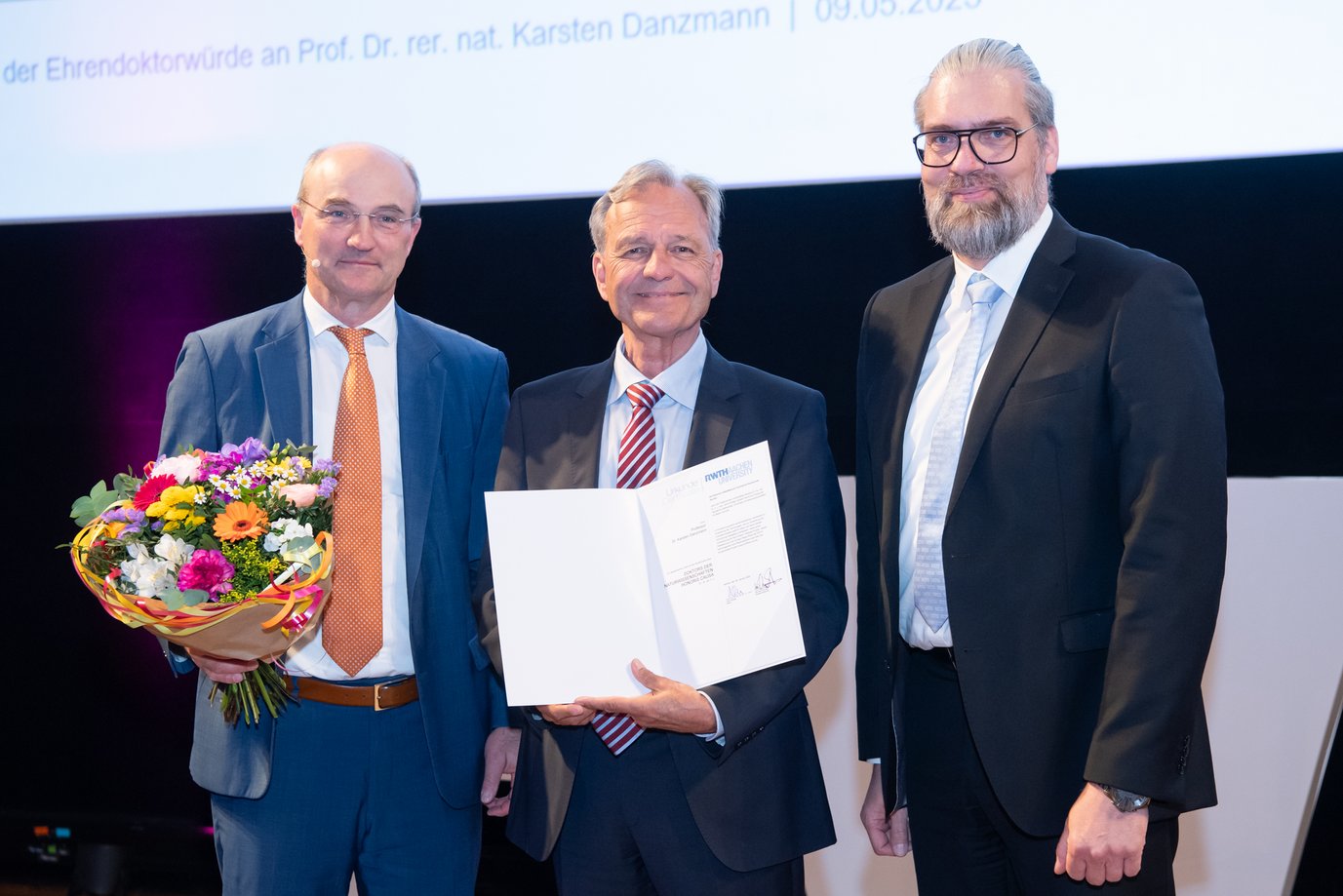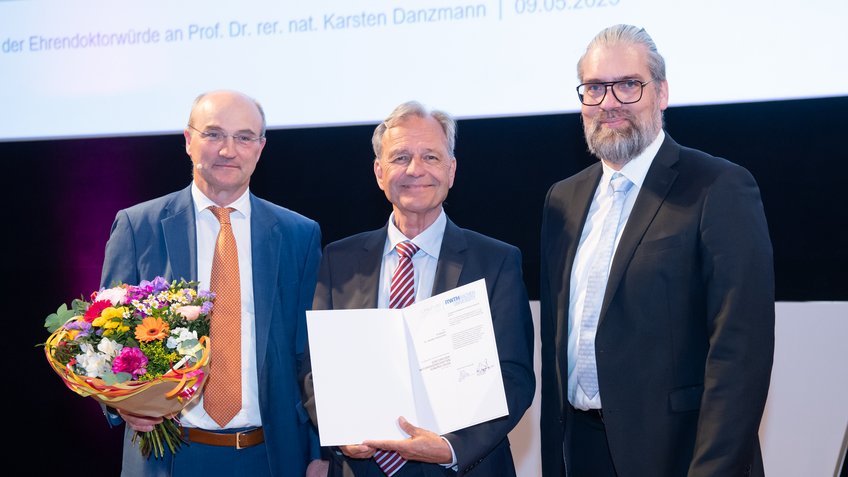Karsten Danzmann receives honorary doctorate from RWTH Aachen University for his groundbreaking contributions to gravitational-wave research
Award for experimental physicist from Hannover
The Senate of RWTH Aachen University awards Karsten Danzmann the academic degree of “Doktor der Naturwissenschaften honoris causa”. Danzmann is a director at the Max Planck Institute for Gravitational Physics (Albert Einstein Institute) and director of the Institute for Gravitational Physics at Leibniz University Hannover. The honorary doctorate ceremony took place in Aachen on 9 May 2025.

Karsten Danzmann receives the award for his outstanding contribution to the development of the technologies that led to the discovery of gravitational waves and that will significantly improve further research into them, as well as for his support of the Einstein Telescope project.
“I am absolutely excited about this award from RWTH Aachen University and about this recognition of my work,” says Karsten Danzmann. “With the European Einstein Telescope and the LISA space observatory, we are looking ahead to a bright future in gravitational-wave astronomy.”
Karsten Danzmann is one of the world’s leading scientists in the field of experimental gravitational physics. Researchers in his Laser Interferometry and Gravitational Wave Astronomy department design and operate large gravitational-wave detectors on Earth and in space. Technology developed at the German-British gravitational-wave detector GEO600 is now used in all large detectors worldwide. Danzmann’s department also plays a key role in the development of the Einstein Telescope, the third-generation gravitational-wave detector in Europe.
The institute is also leading efforts to develop the Laser Interferometer Space Antenna (LISA). LISA will be a mission of discovery – the first gravitational-wave observatory in space. It will observe gravitational waves that are unreachable on Earth, and gather entirely new information about the dark, invisible Universe.
Karsten Danzmann graduated in physics from the University of Hannover in 1977, where he completed his doctorate in atomic and molecular physics in 1980. After being a visiting scientist at Stanford University from 1982 to 1983, he worked as a research assistant at the Physikalisch-Technische Bundesanstalt in Berlin until 1986. In 1986, he returned to Stanford University as Acting Assistant Professor of Physics before joining the Max Planck Institute of Quantum Optics in Garching as project leader in the field of gravitational waves in 1990. In 1993, he was appointed Professor at the University of Hannover and has since headed the Institute for Gravitational Physics there. Since 2002, he has been director at the Max Planck Institute for Gravitational Physics (Albert Einstein Institute) in Hannover.
